CONVERSATION #5(Phan Mai Anh & Nguyen Thien Minh)
20.08.25
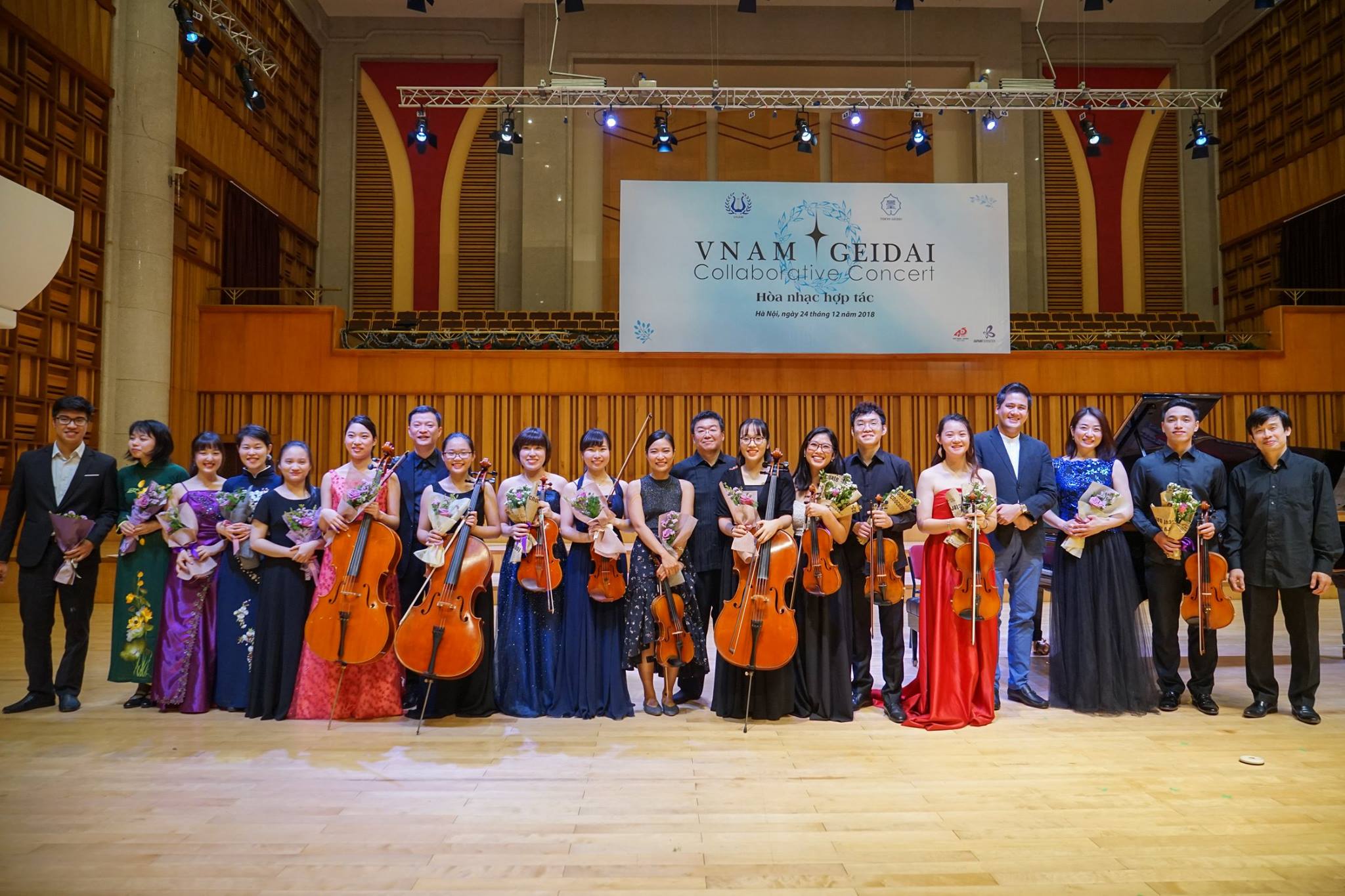
Phan Mai Anh(Violinist, Lecturer at Vietnam National Academy of Music)
Nguyen Thien Minh(Violinist, Lecturer at Vietnam National Academy of Music)
Interview by Haruka Iharada (Tokyo University of the Arts, Research Associate)
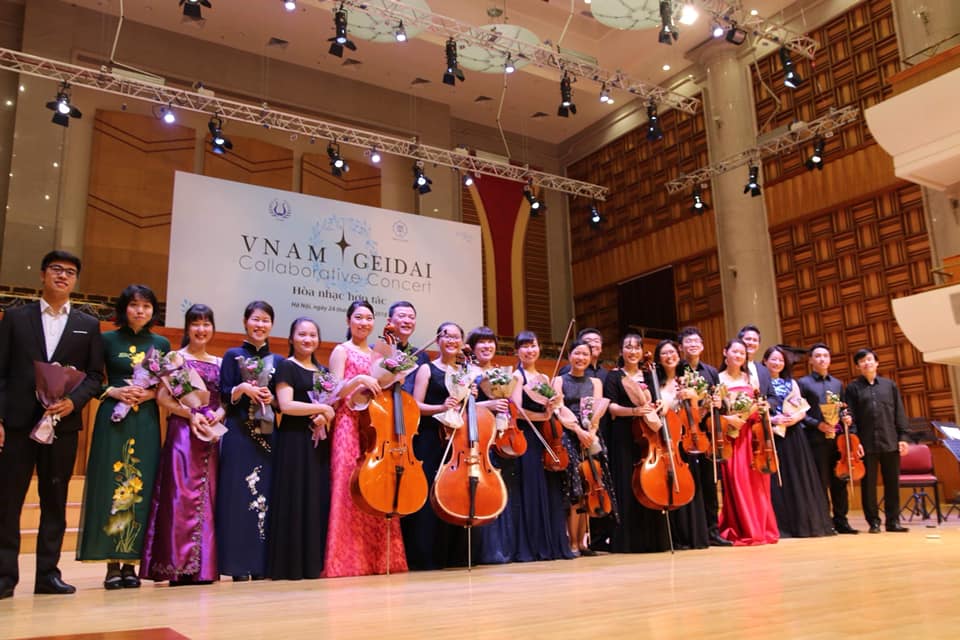
First of all, tell us about your music careers.
Minh: I’m in a teaching position at the Vietnam National Academy of Music (VNAM) and working as a freelance musician. I try to keep a balance between being a performer and teaching, and if I can get an opportunity to do so, I’m open to a variety of activities, not only classical music, but also other genres. I started learning music at age six, and started by learning the electric organ. At that time, there was no professional music program for children in Vietnam, so I attended general music classes. 1 year later, I won a silver medal in organ competition and I also took an audition for admission to VNAM, and that’s when I started playing the violin. At that time, the violin was something new for me. I started playing the violin when I was 7 years old and then went to Norway to study, where I earned my bachelor’s and master’s degrees. Later, I returned to Vietnam. And then I did different jobs for a year, and now I’m working here with the Academy. I came back here because I felt that Vietnam was the place for me. I wanted to be involved in education here, and I wanted to contribute to the classical music community in Vietnam. In Vietnam, there are still a lot of opportunities that are unexplored. And I believe that the power and ideas of the younger generation are still needed.
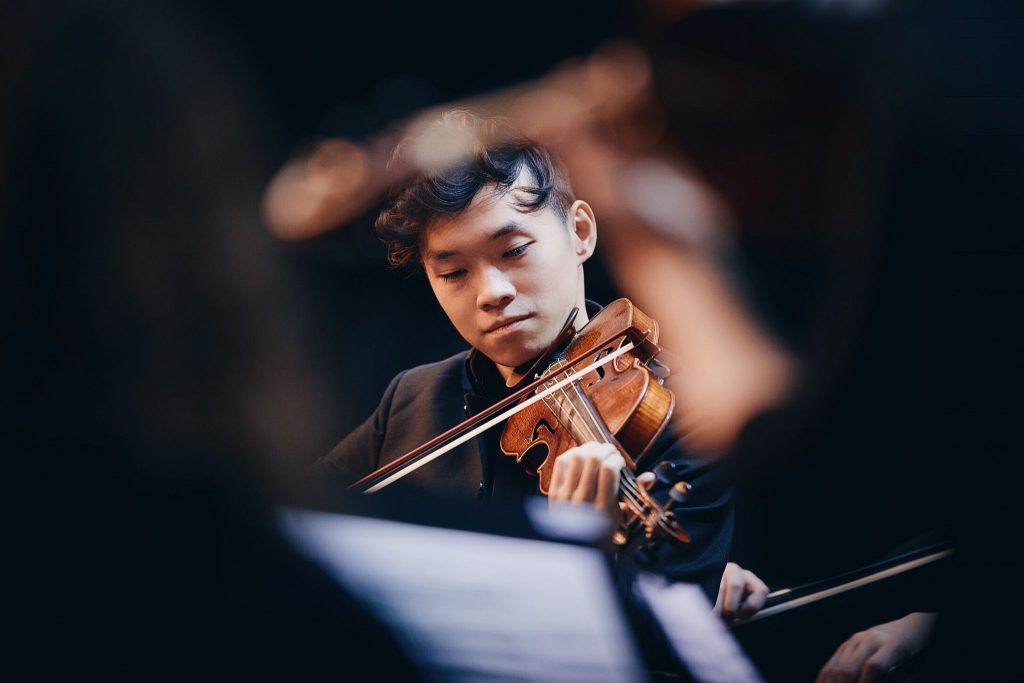
Why did you choose Norway?
Minh: People ask me that question a lot. Well, it’s a country in the far north, far away from here. Geir Johnson, a violinist, was working on a project called “Transposition” that aims improving musician life in Vietnam, and that’s why I went there. During my last year of pre-college, I had the opportunity to participate in his program and attend a summer school in Norway. Met my teacher Stephan, I really like him. And after high school I auditioned, and got in Barratt Due Musikkinstitutt with studying under Stephan. Meeting a good teacher is the best way to develop. I chose Norway because of the teachers.
Could you tell us about your career, Mai Anh?
Mai Anh: I’m roughly the same as Minh. I went to pre-college in VNAM before I got my bachelor’s degree. In Vietnam, there is a long-term education system, and in VNAM, there is a pre-college system before the so-called undergraduate or bachelor’s period at the Academy. Students can start at the age of 11 and go on to a bachelor’s degree in four to seven years. I started playing music when I was seven years old, but then I went on to pre-college, and my bachelor’s and master’s degrees were also obtained here in Vietnam. As a student, I was lucky enough to have many great opportunities, such as joining an orchestra. For example, I was able to participate in a summer camp for orchestras for young Asian musicians, and I was actively involved in orchestral and chamber music. Also, there were many music festivals held in Hanoi, and I got experience helping manage them. As a student, I was involved in music festivals, orchestras, and chamber music programs not only as a violinist, but also in management. After that, I got a scholarship to go to Austria to study for three years. Then when I returned to Vietnam, I decided to work at VNAM. Spending time with young students is a very inspiring experience. I continue to work with various orchestras in Hanoi, and as a performer. I chose this job because teaching at the Academy allows me to continue to work as a performer.
Minh: The festival that Mai Anh mentioned is called Vietnam Connection Music Festival, Organized by Bui cong duy and Chuong Vu. The festival brings together famous violinists from all over the world, including from the United States. It is a very big festival that lasts for one or two weeks. She plays a very important role in the festival, both as a performer and in management.
Mai Anh: It’s a very busy two weeks of the year.
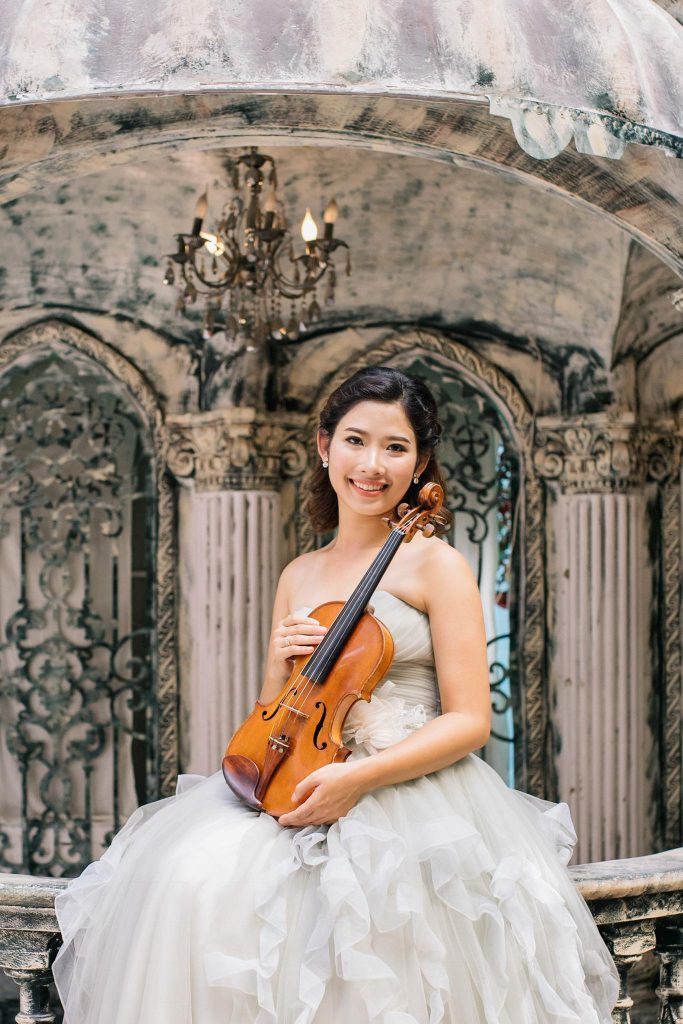
I know you are currently working on teaching at the Academy, what do you think is needed of the classical music education system, and what do you think will be required of it in the future?
Mai Anh: It’s not that the conditions are good or bad, there are more children nowadays showing an interest in classical music than when I was a child. Besides, the Internet has become widespread, and more than anything else, parents are fans of classical music at least as much as children. Also, it used to be that you had to be born into a “musical family” to be exposed to classical music, and you needed the support of your parents in order to learn. Compared to those days, there are more chances to learn classical music, the level of advantage needed to start seems to be lower. But at the same time, however, we need to pay attention to what parents think about their children’s future in classical music. Parents try to provide their children with chances to experience music. And many parents, even those with very talented children, don’t think much about careers in music. That might take away the talent these children have. I think children and their parents should think more seriously about careers in music. They should think about what they are going to do when they are 20 years old. There are only a limited number of orchestras in Vietnam, and a limited number of musicians. There are not enough audiences, either.
Minh: I also agree with Mai Anh. I think things are getting better in terms of more opportunities than when we were young. For example, when we had auditions for VNAM, there were very few people interested in majoring in violin and even for the piano, which is very popular, there were very few applicants. But nowadays, the number of students who want to apply for admission has increased to the extent that they hold auditions not only in Hanoi but also in other parts of the country. Eight years ago, during the economic crisis, there was a temporary drop in the number of applicants, but now, a few years later, the situation is fine. As Mai Anh mentioned before, there are more and more children who want to learn music now, and I think it’s necessary for those children and their parents, and for education, to have a better idea about careers in music. The Academy is not a place simply to learn music and develop skills, but rather a place to cultivate a professional music career. Of course, there are still a lot of challenges and difficulties. While classical music is growing, it’s still not as large as pop music or other music industries. It’s still small. The limited number of orchestras, and even more limited audiences, is an ongoing issue.
Mai Anh: In Vietnam, not enough has been done to develop classical music institutionally or systematically. A symphony orchestra musician’s salary is not a lot. This is because that salary is not related to the income of the orchestra itself, but is paid by the government. No matter how much the country has developed economically, the income earned by musicians has not increased much. I think this is something that needs to be supported by the government and also the development of larger systems. Again, it’s clearly better than before, but it’s still “not enough.”
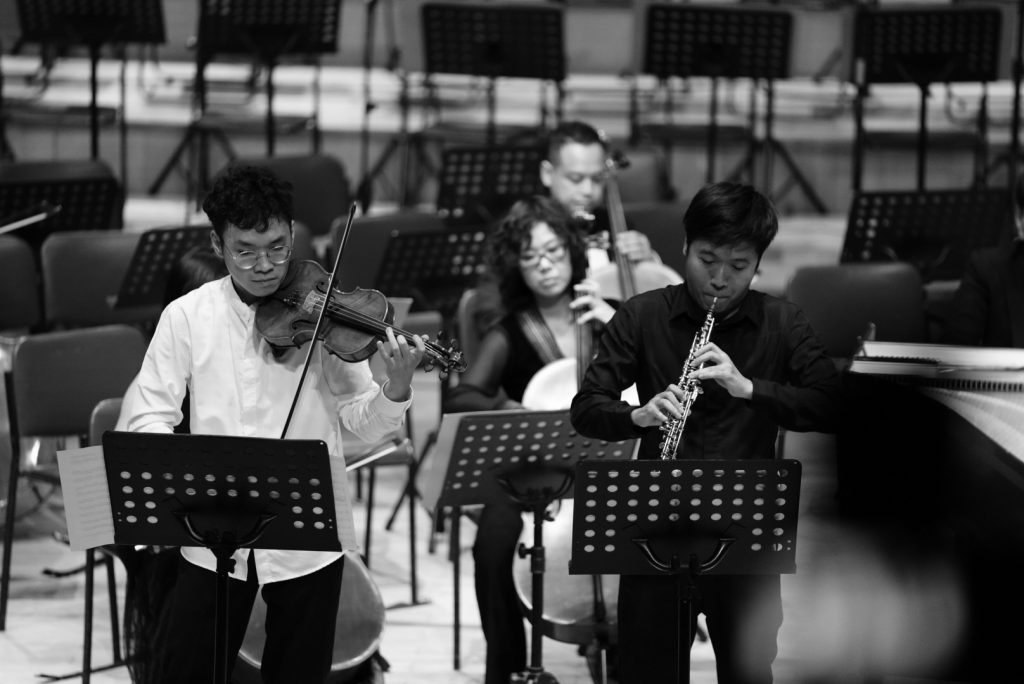
I think you two both belong to the “young generation,” as performers and as staff at the Academy, what are the difficulties or challenges that you feel as part of this generation, or issues you feel the need to try to overcome?
Mai Anh: There is a difficulty in teaching. We don’t have enough experience in education. Especially, I think about this when I teach older students. For example, if I have to teach them a new piece, I have to show them a good example. But I’ve never played that piece. So, I practice new pieces for teaching. I have a very good situation where I have to improve my skills not only for my own performance, but also often for teaching. This is a lot of work, but it’s also a lot of fun.
Minh: I think it’s more meaningful to treat it as a challenge than a difficulty. As Mai Anh said, we as young people have to learn new pieces. There is no time for anyone to learn something new, but when you’re a teacher, you have to be able to do it.
What exactly do each of you teach?
Mai Anh: Me and Minh are in the same position, but we have our own students. I teach ten students majoring in violin and I also teach chamber music. For both pre-college and undergraduate students, chamber music is a subject that must be taken for credit.
What is the age range of the students?
Mai Anh: My oldest student is 17 years old. If I include chamber music, there are undergraduates, so the difference in age between me and the oldest student is only five years. I cannot behave like a friend with such students. Because they have to show respect for the teachers. And they’re looking at my career and my attitude. Nevertheless, being close in age is also an easy thing to get used to, and the experience of teaching students close to my age is a lot of fun. It’s easy to understand their problems and situation.
Minh: In our Academy’s system, in our Academy, if you have master degree you can teach bachelor. And doctoral can teach master. So, if the Academy requires us to teach undergraduates, it can be done right away.
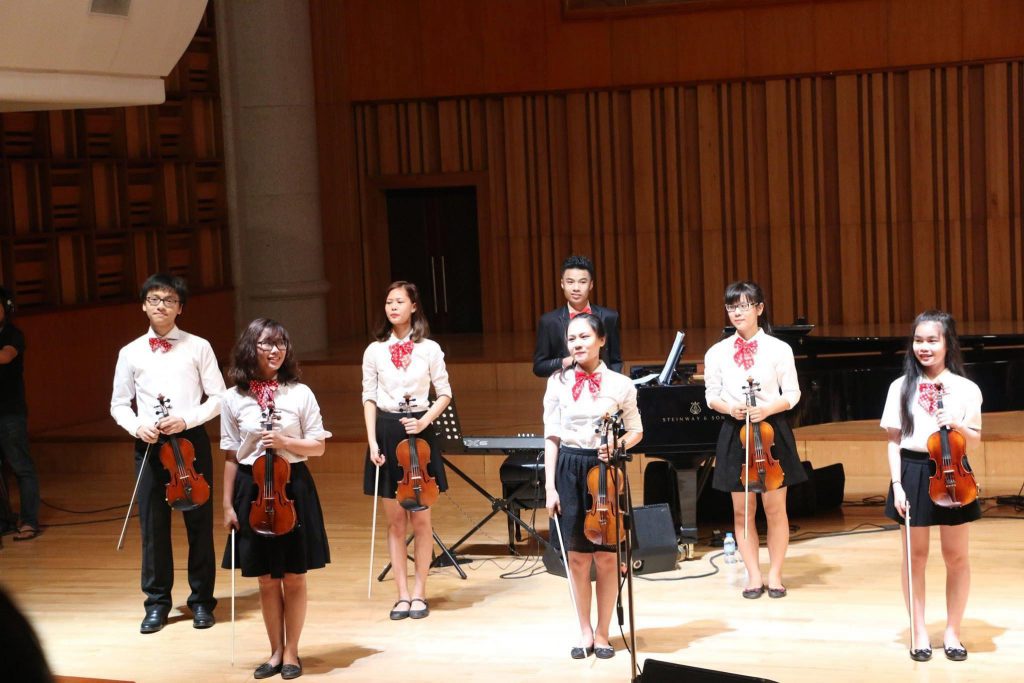
What is the current state of affairs in terms of classical music in Asia and what role do you think you should be taking in the future?
Minh: First of all, I think Asia is very big. Even just Southeast Asia, it’s very big. There are a lot of differences in the way governments create systems or policies to support music. China, Taiwan, Korea, and Japan in East Asia. When it comes to the violin, we see the names of these East Asian countries in every international competition.
Mai Anh: Singapore, too.
Minh: That’s right. They have superb skill as performers. And Thailand is also putting a lot of effort into music.
Mai Anh: It’s not so much classical music there, but they’re great at jazz and marching band. In Thailand, there is a training program for young Southeast Asian musicians. I participated in this program before.
Minh: As with my example of competitions mentioned just now, there is a huge difference in the support systems and technical skills of each country within Asia. It’s a bit difficult to explain, but I think what we understand as development is completely different. For example, I’m very surprised when I look at the Chinese classical music system. I get the impression that their musicians are more prodigies than talented performers. For example, very young children play like stars in a big concerto. I think China has an education system that allows for such things. The conditions may differ from case to case, such as full-time or part-time, but they can also attract very well-known performers and teachers. That’s why there are a lot of really young violinists coming out of China. But we can’t use the same teaching methods in Vietnam. What I’m trying to say is that there are differences within Asia making it impossible to group the whole region together. However, if you take a continental perspective, and include Western countries, I think Asia should be an equal. That’s why I think we should continue to exchange and share experiences.
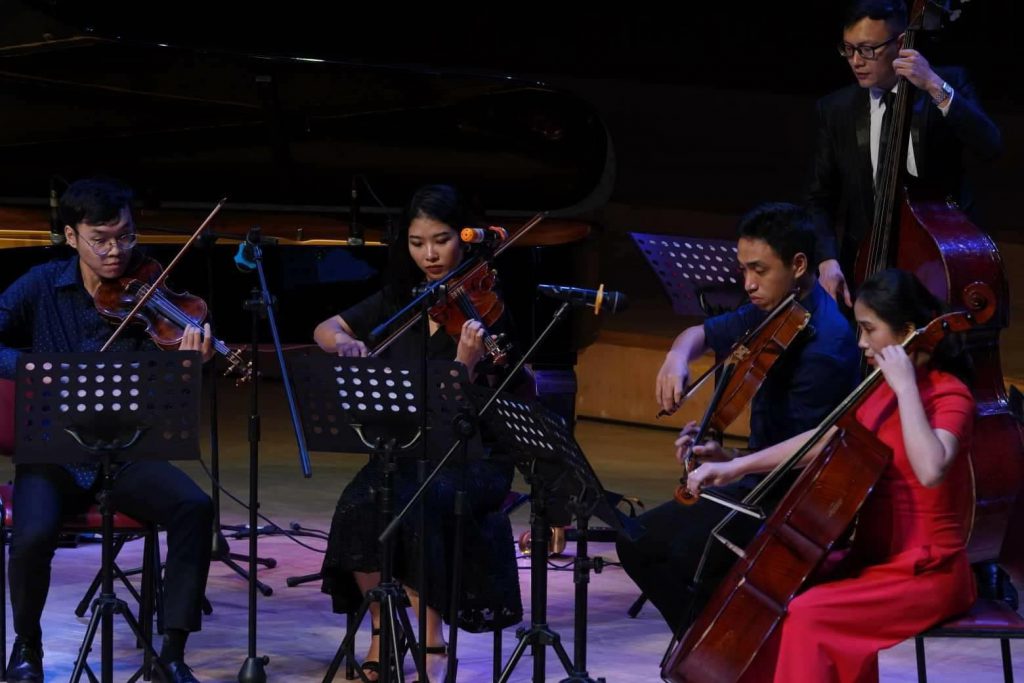
Mai Anh: I think the area of most need right now is the management of arts and culture. Especially for classical music, we need a PR strategy. In other countries in Southeast Asia, they have great publicity, or PR campaigns for classical music. In Vietnam, there is a professional orchestra called the Vietnam National Symphony Orchestra, and they have a very progressive PR campaign with a sponsoring company. But I still don’t think the other organizations, or the classical music scene as a whole, are as fully developed.
Minh: In Vietnam, we don’t see classical music concert posters on the streets. Coming back to the answer to your question, at the continental level, Asia is an equal. So, in terms of my dreams and visions for the future in Asia, I’d like to know more about projects in other countries that transcend national borders. I would like to create more opportunities to share those experiences, contexts and specific methods.
Mai Anh: I think that’s a very good point, and I also think it’s very important to inspire young musicians. For example, for me and Minh, we had the opportunity to join a music camp in Thailand. We had such a wonderful opportunity. It was an experience that would have a strong effect on our future. I met a lot of young musicians and made a lot of friends in Southeast Asia. Young students need to be inspired. Getting inspired is what motivates us to learn. I believe that international exchanges at universities are also important in this sense. However, such opportunities are still very limited. There should be so many more opportunities to learn, teach, and perform.
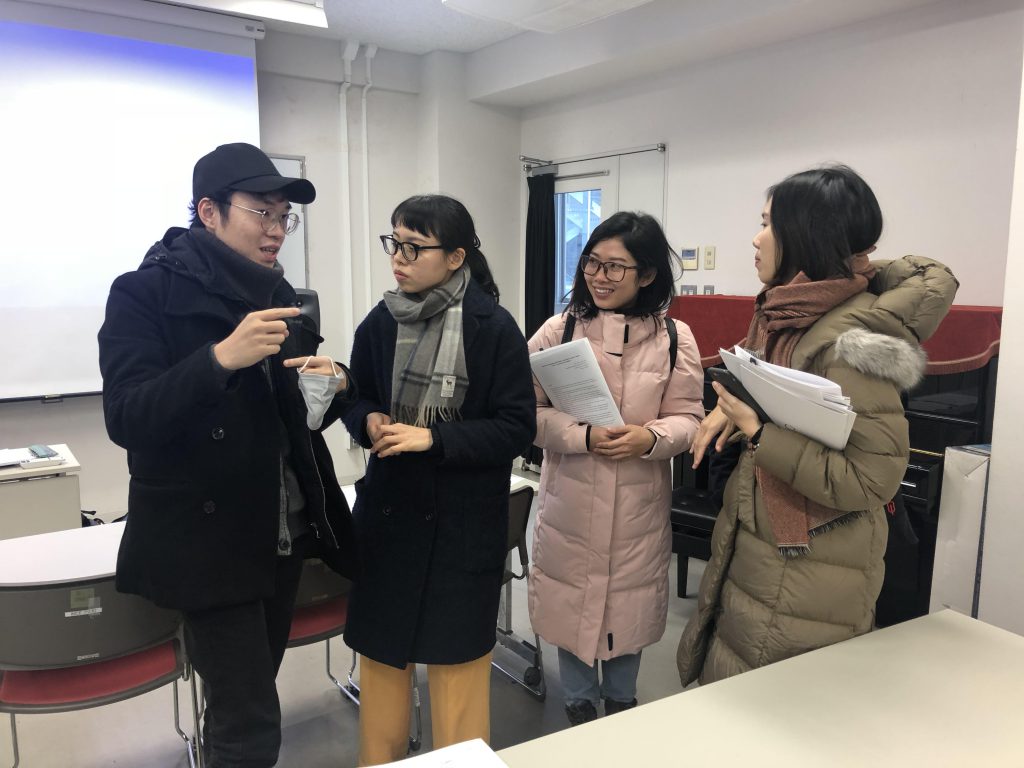
Finally, I would like to ask you about the influence of Covid-19. Tell me how it has influenced your own life, as well as the Academy and educational institutions, and the music scene.
Minh: The answer to this question may disappoint, because Vietnam has been relatively successful in combating the virus, compared to the world. When I say “disappointing,” I mean I can’t answer you with a dramatic story. To give specifics, in the beginning, the Academy was closed for about a month and there were no students there. Sometimes, we only teach online. But the influence of Covid-19 wasn’t limited to musicians. It affected everyone, with effects such as the loss of income and the damage to mental health caused by the lockdown. However, people all over the world are in the same situation nowadays. There are lockdowns everywhere. In general, I think educational institutions were also affected. Most normal schools responded by delaying school itself. And that’s also the same for institutions everywhere in the world.
So, you’re saying that at this stage, in June, things are back to normal, to a certain extent?
Minh: Yes, that’s right. There was just a delay of a month or two. The Academy was only closed for a little over a month, and by May, I think things were back to normal.
Mai Anh: Yes, by then there were no new cases of infection. Sometimes we did see cases in returning travelers, but I think we have been successful in controlling the number of further infections by implementing proper isolation measures. Those who were confirmed to be infected were quarantined for two weeks and tested, and other strict controls were put in place.
Minh: The control of infectious diseases in Vietnam was very strict in order to prevent cascading infections in groups. People were quarantined for up to a month. The app distributed by the government also allows us to know where the virus is having an effect, and where we might become a source of infection. The purpose of the app is to understand where infected people are located, or where an infected person has travelled. So, when I went out, I could go for a walk as long as I checked the app first. I think we had a thorough range of measures, making full use of digital technology solutions. There was also monitoring. Registration was not required, it was only recommended, but by registering personal information and reporting daily on one’s health status, I think those in charge were able to manage the Covid-19 situation in the country in such a way that reflected the results from the app. I feel like registration for and the use of this kind of monitoring has had a very positive effect.
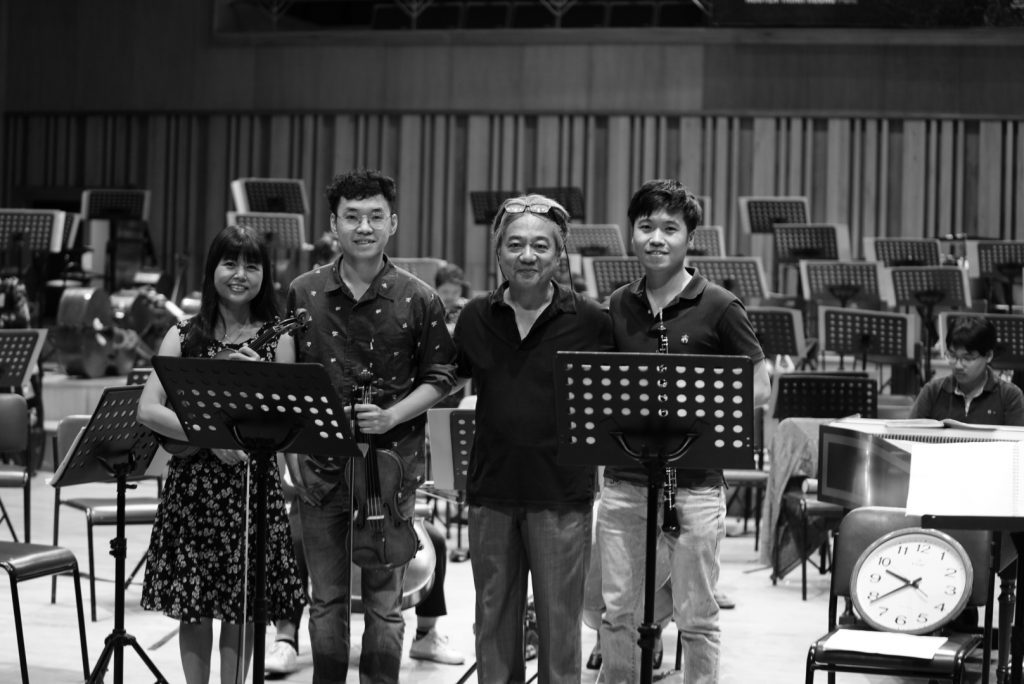
Mai Anh: Right. Also, people were able to find out all kinds of information about the virus. As well as information about the spread of the virus, I believe that many people learned at a relatively early stage how to take measures on an individual level, such as washing their hands and disinfecting things.
Minh: I can’t give a dramatic answer to this last question, but I think this is very good news. On June 24, the Vietnam National Symphony Orchestra, the Vietnam Opera Orchestra and the Vietnam National Academy of Music will hold a very large concert at the Opera House. The name of the concert is “We Return.” Vietnam may have been the earliest country in the world to make it possible to start holding performances after Covid-19.
Mai Anh: Yes, that’s right. In front of an actual audience. Minh has a solo part in that concert. It’s a so-called “No Social Distancing” concert.
Is that right? That’s fantastic, congratulations.